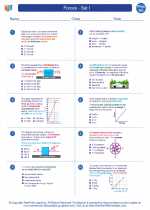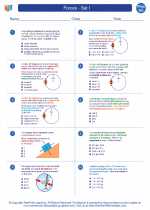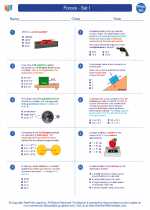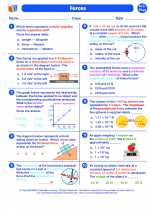Anthropology
Anthropology is the study of human beings, their origins, physical characteristics, and cultural development. It is a broad field that encompasses various sub-disciplines such as cultural anthropology, physical anthropology, archaeology, and linguistic anthropology.
Sub-disciplines of Anthropology
- Cultural Anthropology: This sub-discipline focuses on the study of human cultures, including their beliefs, customs, social organizations, and material traits.
- Physical Anthropology: Also known as biological anthropology, this sub-discipline studies the biological and physical aspects of human beings, including their evolution, genetics, and primatology.
- Archaeology: Archaeologists study human history and prehistory through the excavation and analysis of artifacts, structures, and other physical remains.
- Linguistic Anthropology: This sub-discipline examines the role of language in the social lives of individuals and communities, as well as the evolution of human language.
Key Concepts in Anthropology
- Culture: The beliefs, behaviors, and material traits that define a particular group of people.
- Evolution: The process of biological change over successive generations, leading to the diversity of life on Earth.
- Fieldwork: The practice of conducting research in the natural environment of the subjects being studied, often involving participant observation and interviews.
- Cultural Relativism: The idea that a person's beliefs and behaviors should be understood based on that person's own culture, rather than being judged against the criteria of another culture.
- Material Culture: The physical objects and artifacts created, used, and valued by a society.
Study Guide for Anthropology
When studying anthropology, it is important to engage with the material in a holistic manner, considering the interconnectedness of human societies and their environments. Here are some key study tips:
- Read widely: Explore anthropological texts, ethnographies, and case studies to gain a comprehensive understanding of human cultures and societies.
- Engage in critical thinking: Reflect on the complexities of human behavior, social structures, and cultural practices, and consider the broader implications of anthropological research.
- Apply anthropological methods: Familiarize yourself with techniques such as participant observation, interviews, and ethnographic research to gain practical insights into human societies.
- Consider interdisciplinary perspectives: Recognize the intersections of anthropology with other disciplines such as sociology, psychology, history, and biology, and how these perspectives contribute to a comprehensive understanding of humanity.
- Stay updated: Keep abreast of current anthropological research, debates, and ethical considerations in the field, and be open to diverse viewpoints and interpretations.
By approaching anthropology with curiosity, empathy, and a critical mindset, you can delve into the rich tapestry of human diversity and gain valuable insights into the complexities of our species.
.◂Physics Worksheets and Study Guides High School. Forces - Set I
Worksheet/Answer key Forces - Set I
Forces - Set I  Worksheet/Answer key
Worksheet/Answer key Forces - Set I
Forces - Set I  Worksheet/Answer key
Worksheet/Answer key Forces - Set I
Forces - Set I  Worksheet/Answer key
Worksheet/Answer key Forces - Set I
Forces - Set I 

 Worksheet/Answer key
Worksheet/Answer key
 Worksheet/Answer key
Worksheet/Answer key
 Worksheet/Answer key
Worksheet/Answer key

The resources above cover the following skills:
PHYSICS
Motion and Stability: Forces and Interactions
Identify and analyze forces responsible for changes in rotational motion and develop an understanding of the effect of rotational inertia on the motion of a rotating object (e.g., merry-go-round, spinning toy, spinning figure skater, stellar collapse [supernova], rapidly spinning pulsar).